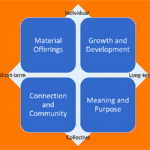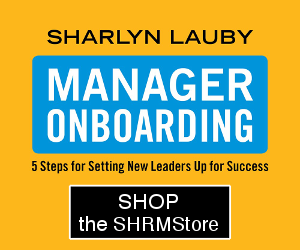Estimated reading time: 3 minutes
I’ve always worked for organizations where people made the difference. For example, in the hotel industry, every hotel has beds, showers, etc. It was the people – the employees – who made the difference. Even when hotels started promoting upscale beds, pillows, and fancy bathroom amenities. The difference was people.
And I’ve always equated that “people are a key differentiator” to employees being able to do their jobs well. Meaning that employees have the skills and resources to do their jobs well. But during this year’s Society for Human Resource Management (SHRM) Talent conference, the event emcee spoke about uniqueness being a key differentiator.
The comment stuck with me, and I’ve been pondering it ever since. Is it possible that when we think about what makes our organization special, it’s not just skills but uniqueness? If that’s true, what does uniqueness look like? In fact, maybe that’s a question organizations need to ask themselves. If the company hasn’t dedicated time to explore this, here are a few questions to start the conversation:
What makes our organization unique? And doing what I did above and just saying “our people” isn’t enough. What is it about our people? If one of the company’s salespeople had to explain to a potential customer what makes the company different, what would they say? Sure, they would talk about skills. But I have to think they would also want to mention something that sets the organization apart from the competition – that’s the uniqueness factor.
How are we incorporating this information in our hiring process? Whatever the company defines as their uniqueness factor needs to be identified in potential employees. So, let’s say the company’s uniqueness factor is that employees are empowered to take care of customer requests. No “I’ve gotta ask a supervisor.” Well then, asking interview questions about empowerment or handling customers should be a part of the interview.
Where do we talk about our uniqueness during onboarding? Organizations should have time allocated in their orientation and onboarding to discuss the company history, customers, and products / services. Part of this presentation should include what makes the organization unique. Companies want their employees to be extensions of the sales team. That means telling employees the company’s uniqueness factor and how they achieve it.
Do our training programs give employees skills AND uniqueness? Talking about the uniqueness factor during interviews and during onboarding is important. Reinforcing the uniqueness factor during subsequent trainings is equally important. I can’t help but think that the whole exercise of identifying what makes the organization unique only works if it’s constantly being reinforced and training activities is a great place to do it.
Are we discussing uniqueness in one-on-one meetings and during performance conversations? This could be a place where organizations can measure an employee’s effort. For example, the organization can use a behaviorally anchored rating scale (BARS) to identify satisfactory performance (i.e., skills) and outstanding performance (i.e., uniqueness). Then, performance conversations can help employees work toward achieving a higher level of performance.
With all the talk about the economy and financial performance, organizations should be very focused on what makes them stand out from their competition. It seems to me that’s the uniqueness factor. If a company says, “We do what everyone else does and we do it exactly the same as everyone else.” well, that’s not really a compelling argument to buy your product or service. Now could be a perfect time to have a discussion about what makes the company unique and then ensure there are systems in place to support it.
37





